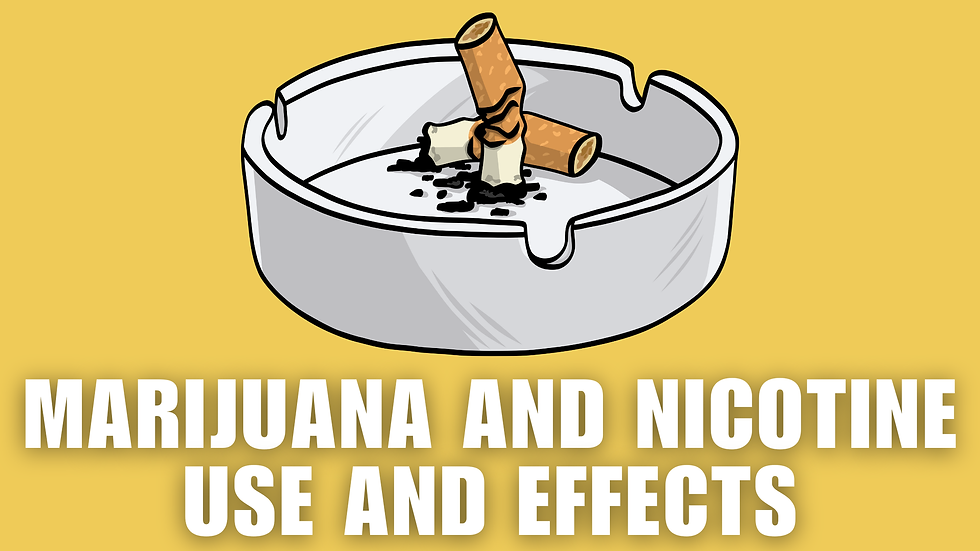What Are The Effects Of Marijuana On Your Body?
- Taylor Wilson
- Feb 18, 2021
- 2 min read

How Cannabis Interacts With Your Body
While most patients are aware of the basic effects of cannabis, some may question ‘What is the science behind it?’ Why is it approved as a medical treatment option for a variety of conditions? Both are important questions for patients considering obtaining a medical marijuana card and for current patients.
The Endocannabinoid System (ECS)
To understand how cannabis reacts in the human body, you need to understand the relationship between the cannabis plant and the human body. The cannabis plant produces more than 700 chemical compounds called phytocannabinoids; “phyto'' means from the plant. Whereas, “endo” cannabinoids are cannabinoids that are found “within” the human body.
The endocannabinoid system is a regulatory system which can be found in all complex animals from fish to humans, and is responsible for keeping your body in Homeostasis or balance. While the ECS was discovered in the early ‘90s along with the first cannabinoid receptor (CB1), researchers did not know at the time just how significant it was. Based upon continued research, we now know that ECS is, in fact, very important to balance things like the sleep-wake cycle, appetite regulation and the immune system.
Cannabinoid Receptors
There are two main cannabinoid receptors in the body:
CB1 receptors: found in the brain, spine, central nervous system (CNS), and peripheral organs and tissues
CB2 receptors: found in the immune system, peripheral nervous system (PNS), brain and gastrointestinal system.
So What’s the Science?
The marijuana plant contains cannabinoids like Tetrahydrocannabinol (THC) and cannabidiol (CBD). These phytocannabinoids are chemicals that have different reactions with our own cannabinoid receptors.
There are actually more than 150 different types of phytocannabinoids in the marijuana plant alone, so it makes an ideal medication because the cannabinoids in the plant respond to the receptors in the body.
The most prevalent phytocannabinoids are THC and CBD. THC is an agonist of both CB1 and CB2 receptors. That means that it is a substance that produces a physiological effect within these receptors. This interaction creates effective anti-inflammatory properties throughout the body, anti-nausea/vomiting and appetite stimulation (to name a few).
CBD is an indirect antagonist of CB1 and CB2. This means that the chemical properties interact with receptors to produce effects in the brain to stabilize mood, in the muscles to reduce spasms and as an anti-inflammatory throughout the body. Why is this useful? These chemical effects lend themselves extremely well to treat symptoms of a number of ailments from chronic pain to anxiety and depression.
While research on the endocannabinoid system is still ongoing, the medical community has recognized the positive effects that cannabis has on the body and the science behind it.
If you are a West Virginia resident suffering from a medical condition you think may benefit cannabis, you're likely eligible for medical marijuana treatment.
Click here to learn more about what West Virginia Marijuana Card's state-certified medical marijuana doctors can do for you, or give us a call at (877) 303-8424 and our friendly support team can walk you through the entire process and schedule you for an evaluation appointment.





Comments